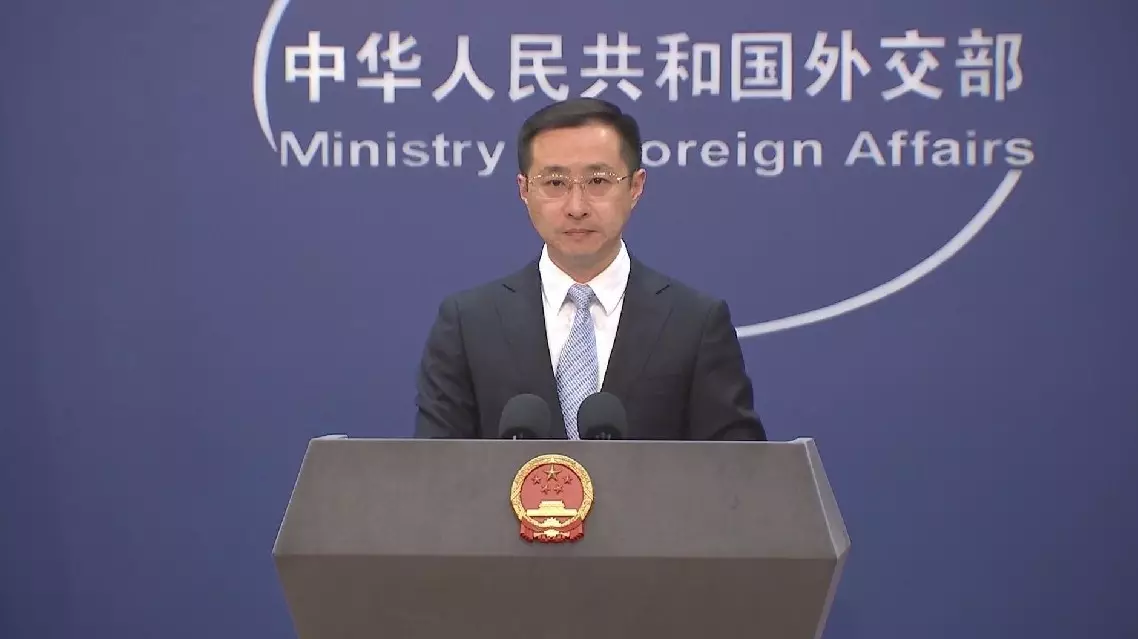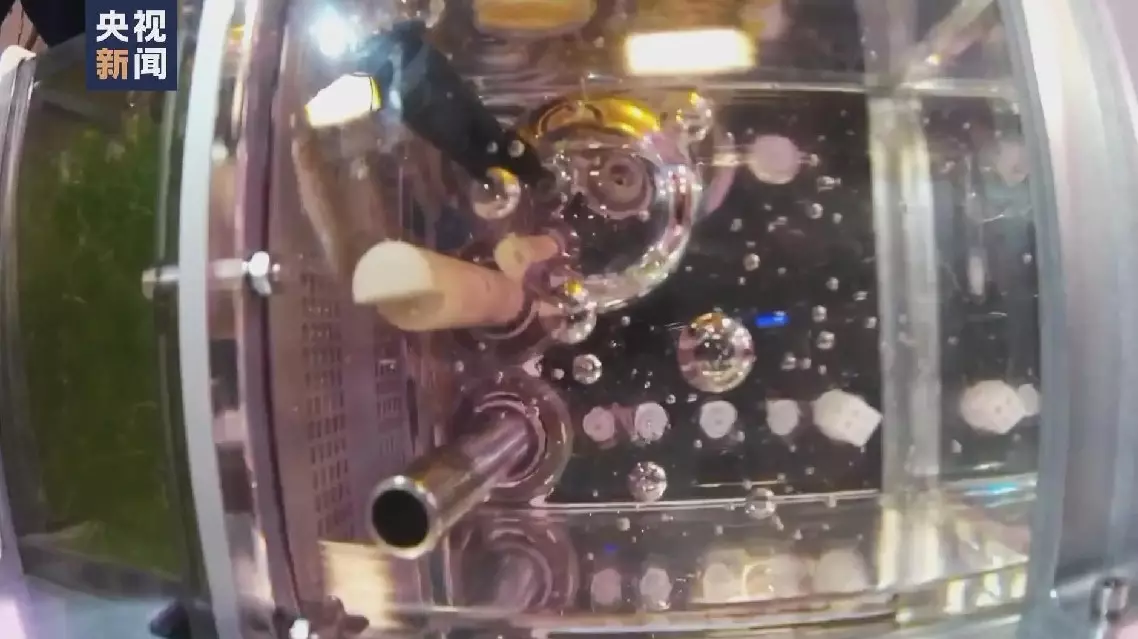The United Nations General Assembly (UNGA) Resolution 2758 which affirms the one China principle brooks no challenge, said Lin Jian, a spokesman of the Ministry of Foreign Affairs of China in Beijing on Monday.
Lin made the remarks at a regular press briefing in response to the question on U.S. Department of State China coordinator and deputy assistant secretary in the Bureau of East Asia and Pacific Affairs Mark Lambert's statement on Taiwan.
"Mark Lambert's remarks is a total distortion of the resolution and facts. They misrepresent the history, and tread upon the international law and basic norms of international relations. It is shocking and outrageous that a U.S. State Department official overseeing China-U.S. relations would speak so irresponsibly and brazenly tell and spread lies. The Chinese side has strongly protested to the U.S. side on those remarks," Lin said.
"There is but one China in the world. Taiwan is an inalienable part of China's territory. The Government of the People's Republic of China is the sole legal government representing the whole of China. This is an undeniable fact, a universal consensus of the international community and a basic norm in international relations. One hundred and eight-three countries in the world, including the U.S., have established and are advancing diplomatic relations with China on the basis of the one-China principle," Lin said.
Resolution 2758 adopted at the 26th Session of the UN General Assembly in 1971 stated in black and white that it "decides to restore all its rights to the People's Republic of China and to recognize the representatives of its Government as the only legitimate representatives of China to the UN, and to expel forthwith the representatives of Chiang Kai-shek from the place which they unlawfully occupy at the UN and in all the organizations related to it."
The resolution made it clear that the government of the People's Republic of China is the sole legal government representing the whole of China, including Taiwan, at the UN; Taiwan is not a country but a part of China's territory. It makes clear Taiwan's status as a non-sovereign entity.
UNGA Resolution 2758 resolved once and for all politically, legally and procedurally the issue of the representation of the whole of China, including Taiwan, at the UN. The resolution also made clear that there can only be one seat representing China at the UN and precluded the possibility of "two Chinas" or "one China, one Taiwan."
Lin stated at the press briefing that since the adoption of the resolution, the one-China principle has been observed by the UN and its specialized agencies on the Taiwan question. Taiwan is referred to as "Taiwan, province of China" in all UN's official documents. It was clearly stated in the official legal opinions of the Office of Legal Affairs of the UN Secretariat that "the United Nations considers 'Taiwan' as a province of China with no separate status," and the "'authorities' in 'Taipei' are not considered to enjoy any form of government status."
The Taiwan region's participation in the activities of international organizations must and can only be handled in accordance with the one-China principle. The UN is an intergovernmental international organization composed of sovereign states. Taiwan, a province of China, has no basis, reason or right to join the UN or its relevant agencies.
This is stipulated in the UN Charter and is the principle that all UN member states must follow and an obligation that they should fulfill, said Lin.
"As a major country and permanent member of the UN Security Council, the U.S. is supposed to take the lead in observing the UNGA resolutions and abiding by the international law and basic norms in international relations, but it does just the opposite. The U.S. deliberately distorted UNGA's Resolution 2758 and propagated the narrative of so-called 'Taiwan's meaningful participation in the UN system' to hollow out the one-China principle, embolden and support 'Taiwan independence' separatist activities, and serve its pernicious aim of suppressing China. Such an attempt to turn back the wheel of history and ignore global opinion will only be resisted and opposed by the international force for justice and will not succeed," Lin said.
【同期】 联大第2758号决议不容挑战,一个中国原则不可撼动。打“台湾牌”必然撞到南墙,支持“台独”必将引火上身。奉劝美方站在国际社会大多数国家一边,站在历史正确一边,遵守联合国大会作出的郑重决定,切实恪守一个中国原则和中美三个联合公报,恪守美国领导人不支持“台独”,不支持“两个中国”、“一中一台”等承诺,停止以任何方式冲撞中国在台湾问题上的底线红线。 "UNGA Resolution 2758 brooks no challenge, and the one-China principle is unshakable. To play the 'Taiwan card' is to drive oneself into the wall. Supporting Taiwan will inevitable backfire. We urge the U.S. to stand on the side of the majority of countries in the world, stand on the right side of history, follow the solemn decision made by the UNGA, abide by the one-China principle and the three China-U.S. joint communiques, act on the U.S. leader's commitment of not supporting 'Taiwan independence,' 'two Chinas' or 'one China, one Taiwan,' and stop stepping on China's baseline and red line on the Taiwan question in any way," Lin said.

UNGA Resolution 2758 on one China principle brooks no challenge: spokesman









